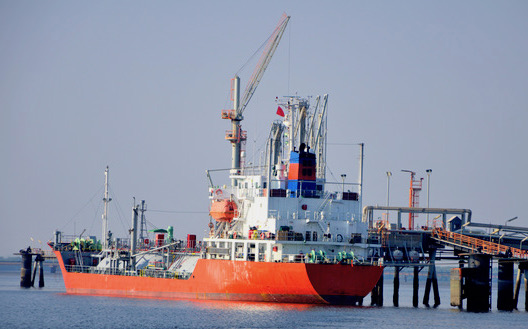Industry watchers were excited that the proposed AltaGas development to build, own and operate the Ridley Island Propane Export Terminal near Prince Rupert, British Columbia got the green light. In 2014 the Oxford Institute for Energy Studies report The US Shale Revolution and the Changes in LPG Trade Dynamics observed, “One of the significant developments associated with the US shale revolution and that has attracted little attention from market analysts is the sharp expansion in the US liquefied petroleum gas (LPG) exports. Substantial increases in domestic supply have not only meant that US imports of LPG, which mainly come from Canada, have dwindled, but the US has now become one of the world’s biggest exporters of LPG. According to the United States Energy Information Agency (EIA), US LPG exports are expected to persist well into the next decade as natural gas liquids (NGL) output in the US continues its upward trend.” In September 2016 the US EIA announced that propane is now the second-largest U.S. petroleum product export, surpassing motor gasoline.
Pacific Northwest and Canadian Developments
In 2014 Petrogas acquired the Ferndale Terminal in Ferndale, Washington, the only existing LPG export terminal on the west coast of North America. Ferndale has been in operation for 40 years and handles both propane and butane shipments destined for Asia. The acquisition has been a good fit for AltaGas Ltd. and Idemitsu Kosan Co. Ltd., who both have interests in Petrogas. Cargo handling facilities include two above ground LPG storage units, tank car, truck, and marine terminal. There are four large oil refineries at the top of Puget Sound and all rely on the Ferndale Terminal to handle butane surpluses. The terminal has been safely operated by AltaGas since 2014.
Industry watchers are hoping that the proposed AltaGas development to build, own and operate the Ridley Island Propane Export Terminal near Prince Rupert, British Columbia will get the green light. Propane from British Columbia and Alberta natural gas producers will be transported to the facility using the existing CN rail network. The Ridley Island Propane Export Terminal will be designed to ship up to 1.2 million tonnes of propane per year. It will use existing rail lines and RTI’s existing world-class marine jetty that has deep water access to the Pacific Ocean. The proposed export facility will offload approximately 50 to 60 rail cars per day and deliver by ocean transport about 20 to 30 cargoes of propane per year to market.
The project will include rail car unloading facilities, refrigeration equipment, power generation, connection to BC Hydro’s grid, propane storage tanks, new piping and the addition of new loading arms to RTI’s existing berth. The Facility is estimated to cost between $400 million and $500 million. AltaGas is working towards a final investment decision in 2016, pending federal regulatory approvals, and is targeting commercial operations to begin exporting propane in 2018.
Conclusion
The BC Shipping News article states that the natural gas revolution is proving to be a game changer not only in the evolution of global energy trade but arguably also in the transportation infrastructure, modes and routes needed to support both LNG and the natural gas liquids in North America. For those in the rail, port and shipping community, it may also mean becoming more comfortable leading discussions about the safety of a wide range of energy projects requiring transportation services that to very a large degree were previously overlooked when Canada was primarily a continental energy trader.
Note to reader: On Jan. 3, 2017 AltaGas Ltd. announced that it has reached a positive Final Investment Decision (“FID”) on its Ridley Island Propane Export Terminal, having received approval from federal regulators. AltaGas has executed long-term agreements securing land tenure along with rail and marine infrastructure on Ridley Island and will proceed with the construction, ownership, and operation of the Ridley Export Terminal.

